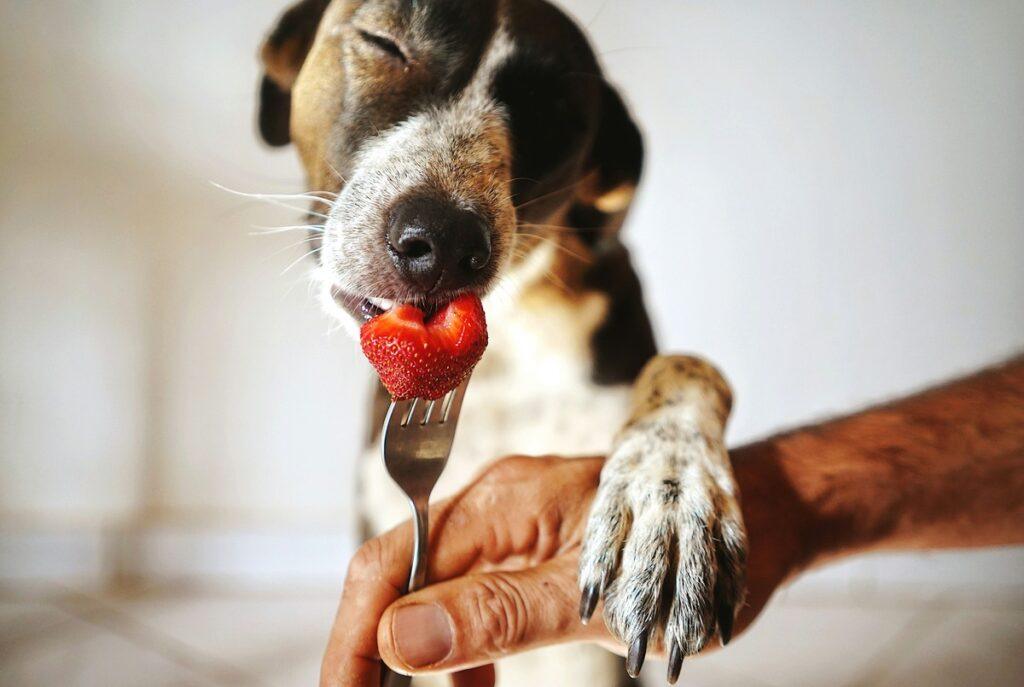Can dogs eat eggs? Yes, they can! Eggs are packed with protein, vitamins, and minerals that can support your dog’s health—when served properly. In this in-depth guide, we’ll break down the nutritional benefits of eggs, the safest ways to feed them, and common mistakes to avoid. Whether you’re considering raw, scrambled, or boiled eggs for your pup, here’s what every dog owner needs to know.
Are Eggs Good for Dogs?
Eggs are one of nature’s most complete protein sources. They contain amino acids, fatty acids, and essential nutrients that contribute to a dog’s overall well-being. Rich in vitamins A, D, B12, and riboflavin, eggs can support skin health, vision, and immune function.
Many owners report shinier coats and increased energy after adding eggs to their dog’s diet. It’s also a great food option for picky eaters or dogs with sensitive stomachs, especially when served boiled or scrambled without oil or salt.

Raw vs. Cooked Eggs: What’s Better?
While raw eggs are popular in some raw feeding diets, they carry a risk of salmonella and biotin deficiency. Cooking eggs reduces these risks without destroying most of the nutrients. Scrambled or boiled eggs (without added ingredients) are safest and easiest to digest.
If you’re feeding raw, ensure the eggs are fresh and from trusted sources. It’s also best to consult with your vet or a canine nutritionist before making raw eggs a regular part of your dog’s diet.
How Many Eggs Can Dogs Eat?
Moderation is key. A small dog can eat about 1 egg per week, while a large breed may tolerate 2–3 eggs weekly. Eggs should make up no more than 10% of your dog’s daily caloric intake.
Too many eggs can lead to weight gain or imbalanced nutrition, especially if they replace a portion of your dog’s complete and balanced diet. If you’re unsure, start slow and monitor your dog’s reaction.
Risks and Side Effects
Egg allergies are rare but possible. Signs include itching, gastrointestinal upset, and ear inflammation. Raw eggs may contain harmful bacteria, while feeding too many can result in nutrient imbalances.
Always avoid seasonings like salt, pepper, butter, or oil. These can be harmful to dogs, even in small amounts. Never serve eggs that are moldy or left at room temperature too long.
Can Dogs Eat Eggshells?
Yes—eggshells are high in calcium and can benefit bone health, especially in older dogs. However, they must be ground into a fine powder to avoid choking or digestive issues. Avoid giving whole shells directly.
Many owners bake the shells, grind them, and sprinkle over meals. You can also buy eggshell calcium powder as a safer, measured option.
Best Ways to Serve Eggs to Dogs
- Boiled eggs: Simple and safe, peel before serving.
- Scrambled eggs: Cook without oil, butter, or seasonings.
- Mixed with kibble: Add chopped eggs as a meal topper.
- Homemade dog treats: Use eggs in baked recipes for added nutrition.
Want more ideas? Check out our homemade dog food recipes for nutritious meal options including eggs.
Common Mistakes to Avoid
- Feeding eggs with butter or salt.
- Giving raw eggs without understanding the risks.
- Feeding eggs daily without adjusting other meals.
- Not consulting your vet for dietary changes.
FAQ
Can dogs eat eggs every day?
Daily eggs are not recommended unless advised by a vet. Stick to a few per week based on your dog’s size and needs.
Are eggs good for dogs with sensitive stomachs?
Yes, when cooked properly, eggs are gentle and easy to digest for most dogs.
Can puppies eat eggs?
Yes, puppies can eat cooked eggs in moderation, but consult your vet first for appropriate portions.
Want to learn about other healthy foods? Read our guides on can dogs eat blueberries and can dogs eat carrots.
Source: PetMD – Can Dogs Eat Eggs?
Final tip: Eggs are healthy—but only when used wisely. Use them to boost your dog’s nutrition, not replace complete meals. And always speak with your vet before major changes.



